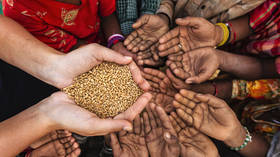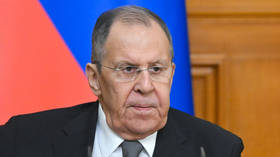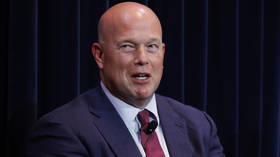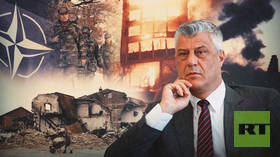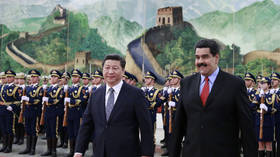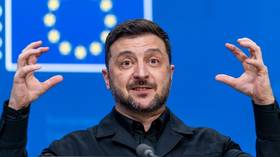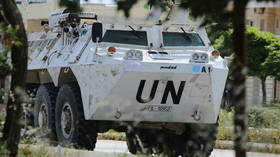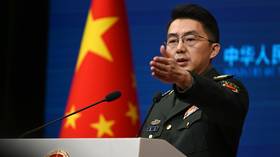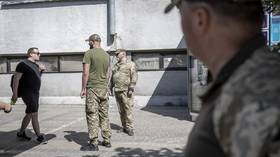Donbass republic mulls attempt to join Russia
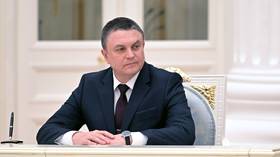
The Lugansk People’s Republic (LPR), one of the two breakaway Donbass territories recognized by Moscow as independent states in late February, is planning to hold a plebiscite on joining Russia “in the near future,” its leader has revealed.
There has been no indication that the Kremlin would accept such a demand. Last month, President Vladimir Putin recognised the independence of the LPR, but almost all of the world considers it to still be part of Ukraine.
Speaking to journalists on Sunday, Leonid Pasechnik said that he thought “in the near future a referendum will be held in the republic, where people will exercise their absolutely constitutional right, and give their opinion with respect to joining Russia.” The official added that he was “somehow sure that’s precisely the way it will be.”
Commenting on the possibility of such a vote in the LPR, Russian Senator Andrey Klishas said on Sunday that both Lugansk and Donetsk had the right to seek to join Russia unless such a move ran counter to their constitutions.
However, Leonid Kalashnikov, who chairs the Russian Duma’s committee on the Commonwealth of Independent States Affairs, Eurasian Integration and Relations with Compatriots, has warned that “now is not the right moment” for holding a referendum in the republic. Kalashnikov argued that “you hardly need to bother with such questions when destiny is being determined on the frontline.”
Both the Donetsk People’s Republic (DPR) and the LPR declared independence in 2014 following a violent coup in Kiev. Both territories are predominantly Russian-speaking, and fears were growing at the time that nationalist elements in the new Ukrainian government would persecute ethnic minorities. Ukraine branded the two breakaway republics separatists and launched an ‘anti-terrorist operation,’ deploying its military to regain control, which resulted in a bloody war. The armed hostilities ended in February 2015 with the signing in the Belarusian capital of the so-called Minsk II peace agreement, brokered by Germany and France.
The accord demanded that both the Ukrainian military and separatists cease fire and put an end to clashes, which had turned the region into a conflict zone. The document also called for major administrative and political reform in Ukraine as well as autonomy and local elections for the Donbass republics. However, the implementation of the agreement was stalled, with the two sides blaming each other for the lack of progress.
In mid-February 2022, the DPR and LPR began reporting an uptick in Ukrainian artillery shelling – something which forced the Donbass republics to ask Russia for official recognition, as their respective leaderships claim. On February 21, Moscow recognized both republics as independent states, signing friendship treaties with Donetsk and Lugansk. However, parts of the Donetsk and Lugansk regions declared by the two republics as their own in their respective constitutions were still under Ukraine’s control.
On February 24, Putin launched a military offensive in Ukraine. The Russian head of state insisted that the neighboring state had to be “demilitarized and denazified,” claiming that far-right militias, which had permeated the Ukrainian government, were supposedly aiming to carry out a genocide of the Russian-speaking population of the Donbass. Ukraine and its allies dismissed Putin’s allegations as a mere pretext, accusing Moscow of waging “unprovoked” aggression against a sovereign state.
